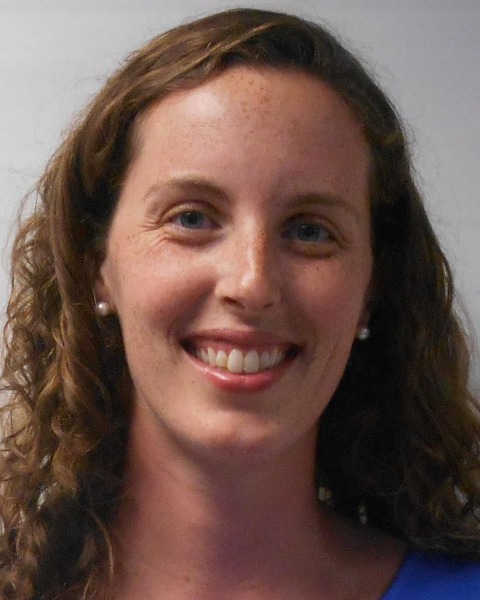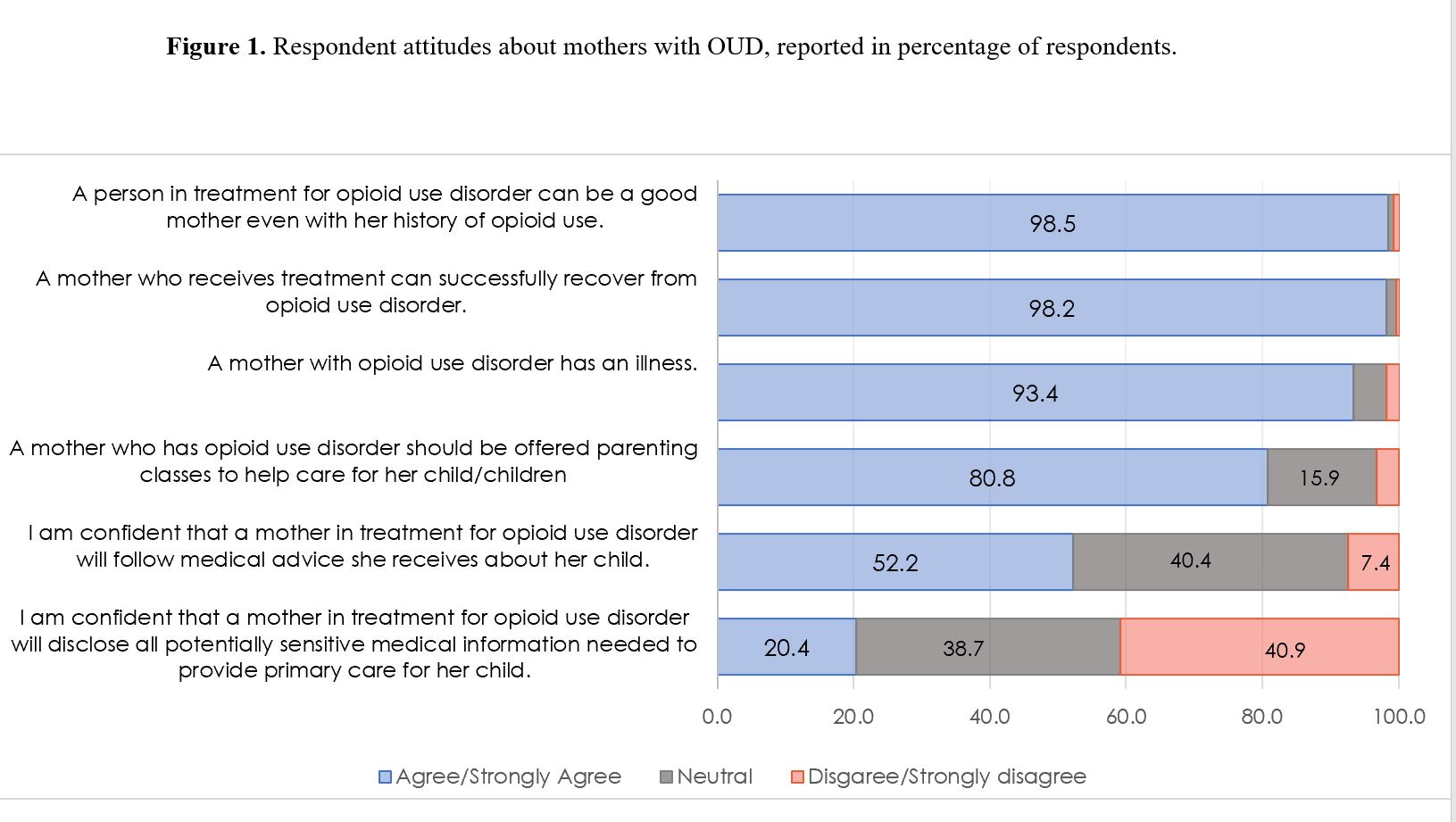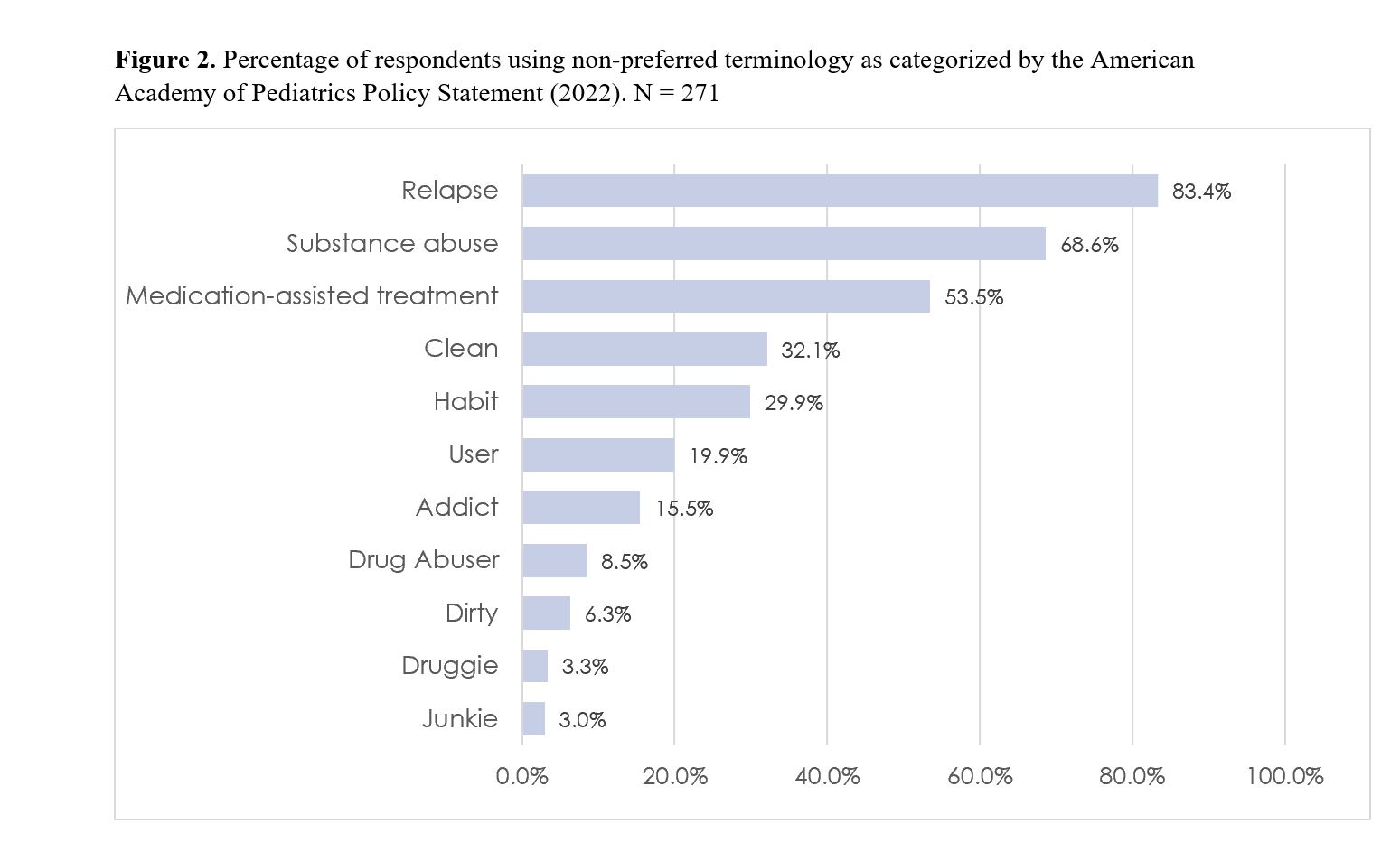General Pediatrics: Primary Care/Prevention
General Pediatrics 3
464 - Pediatric primary care clinician-reported knowledge gaps and attitudes in caring for children with intrauterine opioid exposure
Publication Number: 464.216

Jessica Rohde, MD, MPH (she/her/hers)
Academic General Pediatrician
Nemours Children's Health, Delaware
Wilmington, Delaware, United States
Presenting Author(s)
Background:
Opioid use disorder (OUD) among pregnant women is common. Pediatric primary care for children with intrauterine opioid exposure (IOE) is understudied, including provider knowledge and attitudes.
Objective: To describe pediatric provider knowledge and attitudes related to caring for children with IOE
Design/Methods: This was an IRB-approved cross-sectional, multi-site electronic survey at 7 U.S. pediatric residency programs from April - June 2022. Pediatric residents, primary care pediatricians, and advanced practitioners participated. Participants rated their knowledge and training related to care of children with IOE (knowledge items) and their level of agreement with statements about mothers with OUD (attitude items). P<span style=" mso-color-alt: windowtext; ">articipants also identified terms they use, which were then categorized as preferred and non-preferred terminology based on a 2022 American Academy of Pediatrics Policy Statement. Counts and percentages were used to describe responses, and chi-square comparisons tested for associations between respondent characteristics and outcomes.
Results:
Of 1,004 recruited clinicians, 329 provided responses (response rate = 32.8%). Most respondents self-identified as female (76.6%), Caucasian/white race (74.9%), non-Hispanic (93.6%), and 35 years old or younger (69.6%). Most worked at a hospital-owned practice/clinic (79.2%). Overall, 33% of respondents agreed they received sufficient training to provide high-quality pediatric primary care to children with IOE. As shown in Table 1, lack of knowledge was endorsed for multiple anticipatory guidance topics. Respondents generally agreed that a person with OUD can be a good mother and successfully recover with treatment but were less confident that a mother in treatment for OUD will disclose all sensitive, relevant medical information and follow medical advice for her child (Figure 1). Almost all participants (99.3%) reported they sometimes or always use preferred terminology for maternal OUD. However, most (95.6%) also endorsed use of non-preferred language at least sometimes. “Substance abuse,” “relapse,” and “medication-assisted treatment (MAT)” were the most used non-preferred terms (Figure 2).
Conclusion(s):
Primary care clinicians identified multiple knowledge gaps in caring for children with IOE. Clinicians endorse overall support for mothers in treatment for OUD with some concern about caregiver disclosure of information. Use of non-recommended terminology related to maternal OUD is common..jpg)


